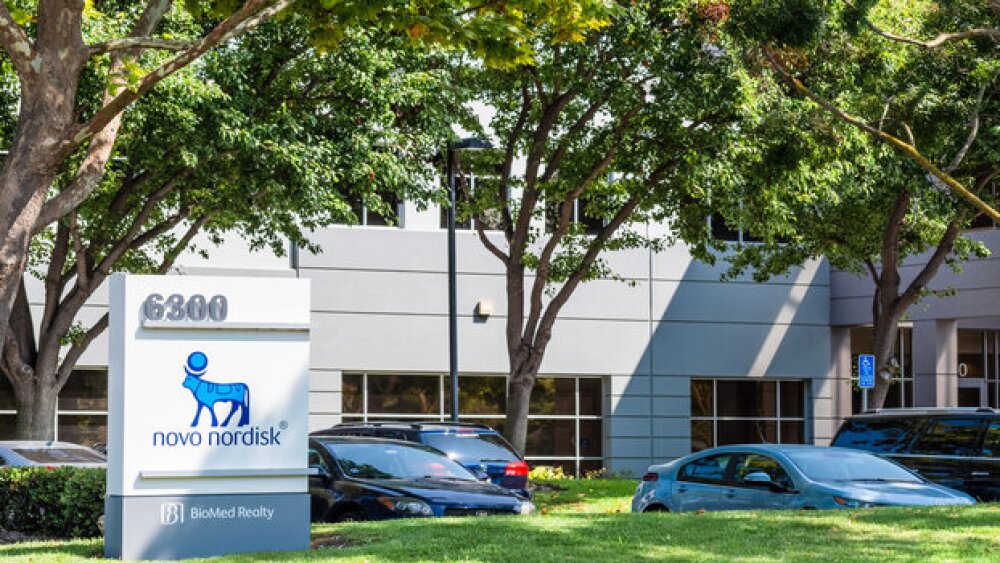Divide & Conquer (“D&C”), a biotechnology company formed in 2018 with a £10 million (approximately $13.1 million) Series A financing from Medicxi. has left stealth mode to mark the publication of another paper in Nature co-authored by one of its founders, Prof. Frank Winkler of Heidelberg University.
Leveraging Prof. Winkler’s ground-breaking research published in Nature in 2015 and again this month, Divide & Conquer aims to open a new front in the war on cancer by disrupting the cell-to-cell communication mechanisms of solid tumour cells. The new research shows that the ability of cancer cells to form “social networks” makes them almost invincible, which is why current drugs fail to cure many patients.
The company’s initial focus is on glioblastoma, a lethal form of brain cancer, where cancer cells have been shown to communicate with each other via structures called tumour microtubes.
Co-Founder David Grainger, PhD commented, “There is mounting evidence, accumulated over decades, and now taken to the next level in Prof. Winkler’s papers in Nature, that solid tumours can leverage this network effect to evade all attempts to kill them. We now have compelling evidence that it can be disrupted, with the potential to render the most lethal tumour types curable.”
Professor Miroslav Radman, the third co-founder of Divide & Conquer, was one of the first academic scientists to propose that mutation-riddled tumours must share materials between themselves, and with healthy cells, in order to survive and propagate. Bringing together his expertise with that of Prof. Winkler has allowed Divide & Conquer to discover a new class of cancer therapeutics that focus on disrupting these networks.
“There is no shortage of biotech start-ups targeting cancer, but this research from Professors Radman and Winkler represents some of the most exciting work in the area that I’ve seen,” said Moncef Slaoui, PhD, a Director at Divide & Conquer. “Glioblastoma is a devastating disease and one of the greatest unmet medical needs. The evidence is now compelling that these networks lie at the heart of this cancer’s resistance to treatment. At Divide & Conquer we aim to develop new medicines that disrupt such communication between cancer cells and bring these to clinical trials in patients.”
Nature is publishing Prof Winkler’s latest research concurrently with an article on a related topic by a team at Stanford Medicine led by Michelle Monje, MD, PhD, Associate Professor of Neurology and Neuro-Oncology, emphasising the growing body of research in this area.
Dr. Slaoui concluded, “Beyond glioblastoma, we envision expanding to other solid tumours such as brain metastasis, the hardest to treat form of breast cancer (so-called “triple negative”), pancreatic cancer and others. Indeed, we predict that the drugs we develop may be most effective in tumours that are currently the most difficult to treat.”
Links
- The new Nature paper co-authored by Prof. Winkler
- The 2015 Nature paper co-authored by Prof. Winkler
- The Nature paper by the team at Stanford University
- More background on Glioblastoma, Cellular Parabiosis, and the company’s Pipeline
About the Divide & Conquer Founding Team
- David Grainger, PhD, Co-Founder and Executive Chairman of Divide & Conquer, is also Chief Scientific Advisor at Medicxi, a leading life sciences venture capital firm, which he co-founded in 2015. Prior to that, he was a venture partner at Index Ventures for four years, having joined the life sciences team in 2012. On behalf of Index, he co-founded XO1 Ltd., which was acquired by Janssen Pharmaceuticals, among other companies. Before joining Index, he founded Funxional Therapeutics and the out-sourced drug developers Total Scientific and RxCelerate. Prior to that, Dr. Grainger led an internationally recognised research group in Cambridge University’s Department of Medicine, where he published more than 80 first author papers in leading journals including Nature, Science and Nature Medicine.
- Miroslav Radman, PhD, Co-Founder and Co-Chair of the company’s Scientific Advisory Board, is a genetics biology scientist with a specialty in DNA repair. Since 1998 he has served as a professor of Cell Biology at Paris Descartes University (PDU). Before joining PDU he spent ten years as a tenured research professor at the Free University of Brussels. He is also the co-founder of the Mediterranean Institute for Life Sciences in Split, Croatia. Among other advances spearheaded by Dr. Radman, he demonstrated the molecular mechanism of speciation (published in Nature) as well as a methodology that enables direct visualization of horizontal gene transfer (published in Science). He has received over 80 research grants, holds seven patents and is the author of nearly 200 publications on topics related to DNA, and is the recipient of a over a dozen science awards.
- Moncef Slaoui, PhD, Director, is also a Partner at Medicxi, which he joined in September 2017. Prior to Medicxi, Dr. Slaoui was GlaxoSmithKline’s Head of Pharmaceutical R&D, resulting in a substantial improvement in productivity, a late-stage pipeline comprising more than 30 phase 3 programmes and a totally redesigned discovery organisation comprising 38 highly-focused and accountable Discovery Performance Units. Outside of his role at Medicxi and Medicxi portfolio companies, Dr. Slaoui also serves as Chairman of Galvani Bioelectronics, founded by GSK and Alphabet Inc. subsidiary Verily Life Sciences.
- Frank Winkler, MD, PhD, Co-Founder and Co-Chair of the company’s Scientific Advisory Board, is a full professor of experimental neuro-oncology and managing senior physician at the Department of Neurology at University Hospital Medical Center and German Cancer Research Center (DKFZ) in Heidelberg, Germany. His laboratory focuses on mechanisms of brain tumour progression and therapy resistance. A major aim of his research is to translate paradigmatic discoveries into clinical concepts, both for gliomas and brain metastases. His lab has discovered tumour microtubes, and the malignant and resistant multicellular networks they generate, in glioblastomas and other incurable primary brain tumours. The current research focus lies on understanding the exact role of tumour microtubes for brain tumour resistance and recurrence; on intratumoural communication and tumour-brain communication in these networks; and on finding therapies that disconnect tumour cells, with the ultimate aim to tackle these difficult diseases in a completely novel way.
About Cellular Parabiosis
Cellular parabiosis refers to the ability of individual cells in a tissue to share and exchange contents: ions, small molecules, ribonucleic acid (RNA), proteins, and even whole cell organelles. This “cellular solidarity” is established via extensions such as “tunnelling nanotubes” (TNTs) and tumour microtubes (TMs), and transport vehicles such as exosomes, and pores such as gap junctions. Cellular parabiosis allows mutation-riddled tumours to survive and thrive, and even share their toolkit of resistance mechanisms. More information on Cellular Parabiosis is here.
About Divide & Conquer
Divide & Conquer is a biotechnology company focused on discovery and development of a new class of oncology therapeutics aimed at disrupting communication and complementation between cancer cells, also known as cellular parabiosis. The company was founded by David Grainger, PhD, Prof. Miroslav Radman, and Prof. Frank Winkler, and received A-round funding from Medicxi.
Please see conquer.bio for more information, and connect with the company on Twitter and LinkedIn.
About Medicxi
Medicxi is an international investment firm with the mission to create and invest in companies across the full healthcare continuum. Medicxi was established by the former Index Ventures life sciences team and invests in both early stage and late stage therapeutics with a product vision that can fulfill a clear unmet medical need. GlaxoSmithKline, Johnson & Johnson Innovation – JJDC, Inc., Novartis and Verily (an Alphabet company) are investors in Medicxi funds.
Medicxi’s team has been investing in life sciences for over 20 years. Globally, it has invested in 89 innovative biopharma companies and achieved 32 exits through IPO and M&A, including Genmab (NASDAQ Copenhagen: GEN), PanGenetics (sold to AbbVie), Cellzome (sold to GSK), Micromet (sold to Amgen), Molecular Partners (SWX: MOLN), XO1 (sold to Janssen Pharmaceuticals, Inc.), Minerva Neurosciences (NASDAQ: NERV), Padlock Therapeutics (sold to Bristol-Myers Squibb), Gadeta (structured transaction with Gilead), Impact Biomedicines (sold to Celgene), and Adaptive Biotechnologies (NASDAQ: ADPT).
Please see www.medicxi.com for more information.
View source version on businesswire.com: https://www.businesswire.com/news/home/20190918005802/en/
Contacts
Company:
info@conquer.bio
Investors and Media:
Bill Douglass
Gotham Communications LLC
bill@gothamcomm.com
+ 1 (646)504-0890
Source: Divide & Conquer





